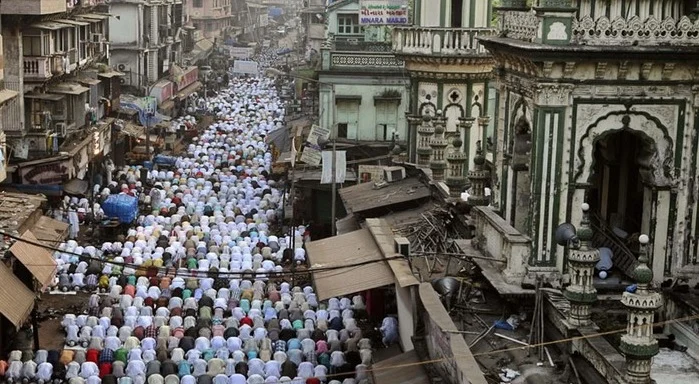Muslim Community Holds Key to Electoral Dynamics in Mumbai Amidst Changing Alliances
NEWS PRISM, MUMBAI NEWS BUREAU
MUMBAI: The diverse interests are reshaping Mumbai’s political landscape and affiliations of Mumbaikers, with the influential Muslim community, historically leaned towards the Congress, playing a pivotal role in several key constituencies.
In the 2019 Lok Sabha elections, the alliance between Vanchit Bahujan Aghadi and AIMIM managed to split the anti-BJP vote bank across Maharashtra. However, this alliance made a noticeable impact only in Aurangabad, leaving Mumbai largely unaffected. Despite a significant Muslim population in Mumbai and its suburbs, AIMIM’s Muslim-centric politics did not resonate strongly in the city.
With the recent split between Shiv Sena and NCP, questions arise about the allegiance of Muslim voters in the upcoming elections. The Muslim community in Mumbai has generally supported Congress, barring two elections post the 1992 riots. The formation of the Maha Vikas Aghadi (MVA) in 2019, a coalition of Shiv Sena, NCP, and Congress, introduced a new political dynamic in the state. Shiv Sena’s alliance with Congress and NCP, despite its Hindutva roots and former BJP partnership, complicates the political equation regarding the Muslim vote.
Uddhav Thackeray’s admission that Shiv Sainiks were involved in the Babri Masjid demolition juxtaposes sharply with the significant Muslim presence at his rallies. This highlights the complexity of Mumbai’s political scene and the shifting alliances within it.
Mumbai constituencies like Mumbai (South), Mumbai (South-Central), and Mumbai (North-Central) have a considerable Muslim electorate. Shiv Sena (Thackeray faction) has held sway over two of these constituencies since 2014 in alliance with BJP. Now independent and part of the MVA, Shiv Sena could benefit from this broader coalition. Political analysts predicate that Muslim votes may lean towards Congress-aligned parties, united in their goal to defeat the BJP. They emphasize the Muslim community’s pragmatic approach, prioritizing future prospects over past grievances, and their historical preference for Congress.
The Muslim community’s support is crucial, particularly in Mumbai’s key constituencies. However, doubts remain about whether Shiv Sena can secure this vote bloc. The establishment of a Shiv Sena branch in the Muslim-dominated Mohammed Ali Road indicates efforts to broaden its appeal.
Congress leader Hussain Dalwai predicts a shift in Muslim votes towards Shiv Sena within the MVA framework, viewing it as a viable counter to BJP’s divisive politics. He highlights the Muslim community’s concerns about BJP’s rule and praises Thackeray’s resilience against BJP’s tactics. However, Dalwai stresses the need to address socio-economic issues affecting Mumbai’s Muslim community, including education, employment, and housing. With 80% of the community living in slums and facing limited educational opportunities, Congress previously championed their concerns.
For Thackeray and Shiv Sena, balancing the retention of their traditional Hindu vote bank while courting Muslim voters is strategically imperative. Thackeray’s departure from BJP’s Hindutva ideology and his role in the MVA government may foster trust among Muslim voters.
The forthcoming elections will reveal the extent of Muslim community’s influence and the implications for Mumbai’s political dynamics.

